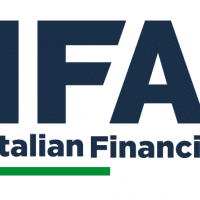Many investors are turning to environmental, social and governance responsible investing – otherwise known as ‘ESG investing’. In fact, between 2019 and 2020 the flow of wealth into such funds has more than doubled, and the sector has seen a 42% (US$17.1 trillion) increase since 2018 according to a 2020 Trends Report.
What is ESG investing?
It is not the traditional ‘avoidance of bad’ companies or sectors, like oil or munitions. It covers a broad range of non-financial factors applicable to all industries and individual businesses, such as:
Environmental – climate change, carbon emissions, pollution, biodiversity, deforestation, water security.
Social – data protection, equal opportunities, working conditions, human rights, child labour and slavery, philanthropy.
Governance – business ethics, security pay, bribery and corruption, political lobbying and donations and tax strategy.
Whilst these are not commonly part of mandatory financial reporting, companies are increasingly making such disclosures on their financial reports, and official bodies are making changes to define, homogenise and incorporate these factors into investment processes.
So, what is driving this change in investment ideology?
Firstly, growth in the sustainable sector has outperformed other more traditional sectors such as auto and energy, and importantly have proved lower volatility during the Covid pandemic.
We saw markets take a battering during the initial phase of the pandemic in February and March 2020, but according to analysis by Morningstar, 66% ESG funds ranked in the top half of their categories and 39% ranked in the best quartile during these months.
There is also Morningstar research showing portfolios with ESG and sustainable funds perform better in the long term. They found that over 10 years, 80% of blended sustainable equity portfolios outperformed traditional funds. Moreover, 77% of ESG funds that existed 10 years ago are still going, compared to 46% of traditional funds.
There has also been an increased demand from retail and institutional investors, and it is not just the younger generation. 80% of asset owners across all age groups are incorporating sustainable and ethical investments within their portfolios. This is supported by Morningstar’s recent poll in the US which showed that 72% of adults had a moderate interest, with 21% expressing a high interest, and only 11% preferring to focus on the more traditional higher return industries. Likewise, financial advisers believe their clients are more committed to ESG investing, with research showing 74% of clients are incorporating such funds in their portfolios, up from 30% in the previous 2 years.
Legislation has also had its part to play. Denmark, France, Hungary, New Zealand, Sweden and the UK, have made carbon-neutral targets law, with the US and a further 23 countries committing this to policy. A further 132 countries have committed to becoming carbon neutral by 2050. This trend and development at a governmental level will provide further opportunities for ESG investors.



























